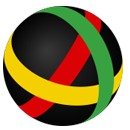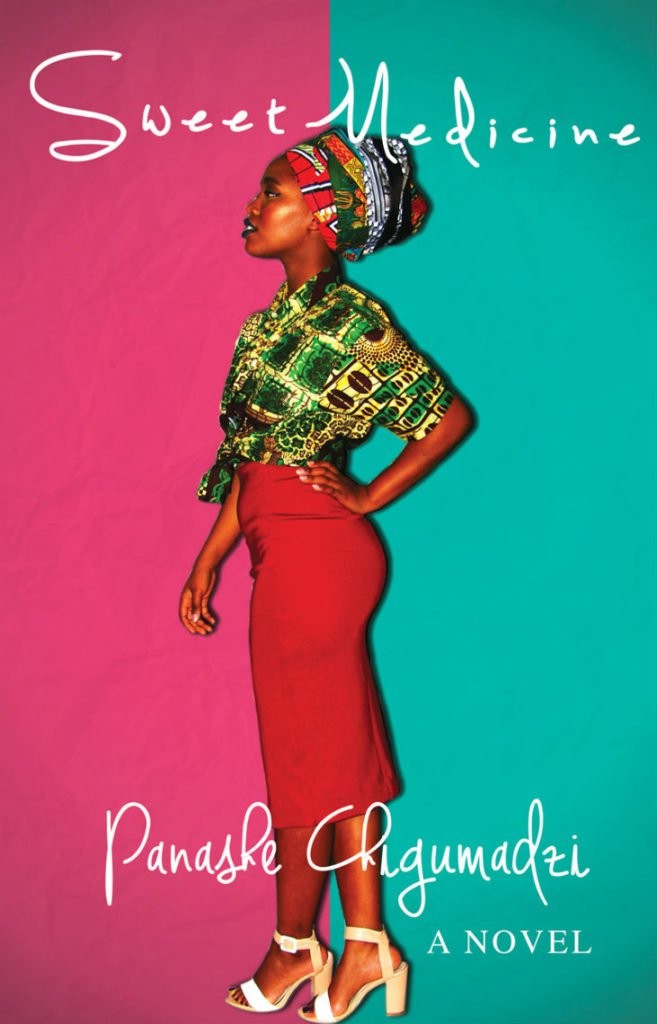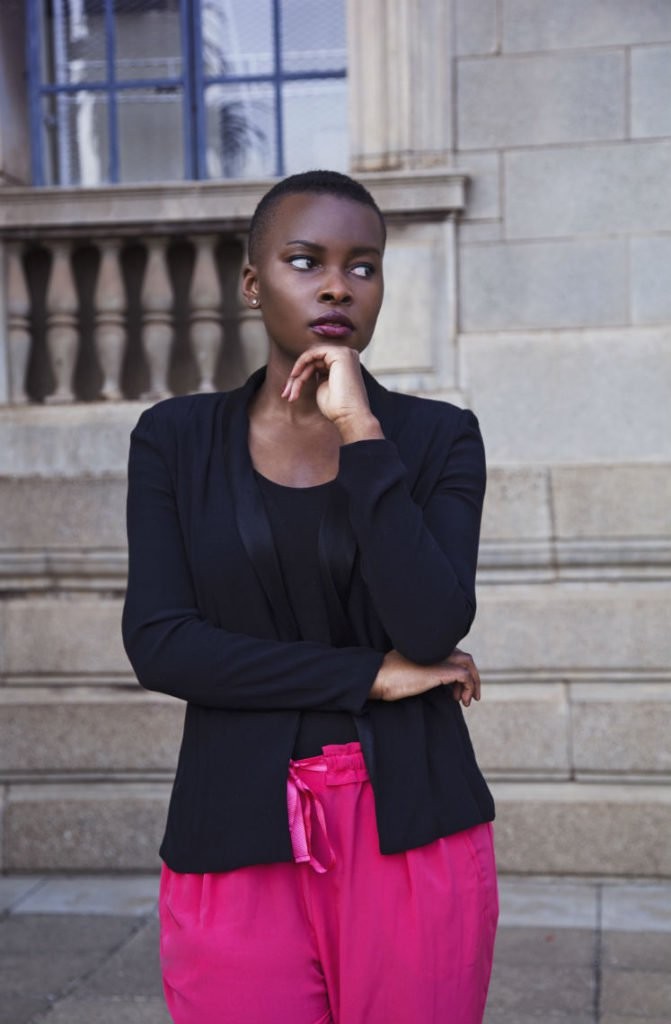Between Our Selves:
An Interview with
Panashe Chigumadzi
By Bwesigye bwa Mwesigire
— At the age of 25, Panashe Chigumadzi is one of the most prominent intellectual voices in South Africa. Born to Zimbabwean parents, she is currently a Ruth First fellow at the University of Witwatersrand. She is the founder of Vanguard magazine and is part of the World Economic Forum Global Shapers Community. She worked for the Africa Business News Group as a reporter for CNBC and as a columnist for Forbes Woman Africa. In September 2015, her widely acclaimed debut novel, Sweet Medicine, was published by Blackbird Books. TIA’s Bwesigye Bwa Mwesigire caught up with Panashe to talk about writing, activism and the importance of black-owned media spaces.
Bwesigye Bwa Mwesigire (BM): You wrote for Forbes magazine and you were a TV journalist for CNBC Africa. Did you train as a journalist?
Panashe Chigumadzi (PC): I studied accounting as my undergraduate degree. In my third year, when I decided I would not become a chartered accountant, I decided that the way to become a fiction writer was to start in journalism, specifically financial journalism. It worked because I had a degree in accounting. The Africa Business News Group, which owns CNBC and Forbes Africa, is where I started, working as a reporter for a year. Thereafter I decided that I wanted to understand the business of media, so I moved to the corporate side of the company and worked in the office of the managing director of the group. That was when I wrote a column for Forbes Woman Africa.
All my journalistic training was on the job – sometimes that is what makes you a better journalist. If you understand the subject matter, you can learn the skill of writing on the job. Understanding the subject matter is what distinguishes a great journalist. You can have the form and the skills to conduct an interview, but you would be unable to challenge your interviewee or have a robust discussion if you lacked knowledge of the subject matter. Journalists whose only background is in journalism sometimes struggle when they have to interview people who are experts, particularly in a specialized field like financial journalism. If you are speaking to a CEO about their financial statements and you have had zero exposure to financial statements, you can’t do an in-depth interview. The people who read your work have that knowledge, of course, and it won’t serve them if you are just asking surface-level questions.
BM: Did you start the Vanguard group while you were working with the Africa Business News Group or was that something that came later?
PC: I had worked in media because I was interested in the idea of changing mind-sets and really understanding how we could use media particularly for us as Africans and as black people. When I began to work on the corporate side, I understood that it was not good enough simply to have black people writing. I saw the terrible situation in cultural production where black people were on the screen, the stories were about Africa, about black people, written by Africans, but ultimately the editors, the managers and, most importantly, the owners of the companies tended not to be black Africans or people from the continent.
I decided I wanted to start my own media business; my own empire. I wanted to test out my hypothesis about a particular kind of market for young black people like myself and I thought I would start with the web edition. I began with that while working for CNBC and it took three months before I finally left CNBC.
BM: Your debut novel Sweet Medicine was published shortly after you started Vanguard. So, on one hand, there is Panashe, the media owner, and on the other hand there is the creative one; the writer. But there is a third side too: You are one of the eight founder members of the Feminist Stokvel. How do you explain these three sides: the work that you do as a feminist activist, your creative work as a novelist and your presence as a corporate media owner?
PC: I am no longer a member of the Feminist Stokvel but I was part of that for a year. I would not put that as a complete side of me, as such. I say that because I was just doing what I already did. It was just combining efforts with other black women who were doing similar work, creating platforms for us to meet. All of it has to do with writing and media. It is ultimately all about black narratives, particularly the narratives of black women.
If we had to look for three different aspects, they would be, one, nonfiction writing, and of course Vanguard is one avenue for that. I’ve also written a number of newspaper columns and contributions and I’ll continue doing that. The fiction side is the second aspect. Sweet Medicine is my first novel and I am working on my second book. The third side would be me in an academic space. Then there is a fourth side: activism. Being a student has been one of the most influential spaces for me and it feeds into all the other aspects of my life. Being involved in the Fallist movements was particularly important because all my work as a writer has to do specifically with the black condition, the black woman’s condition and theorising about and speaking to black liberation; black revolution.
That said, I am starting to think less about bifurcation and dichotomies; the idea of me as Vanguard, me as fiction writer, me as essayist. There are many people who do that; many writers who go across genres. Look at someone like Audre Lorde, who wrote academically but was also a poet and, of course, an activist, doing really amazing work. Think of someone like James Baldwin: His fiction, activism and essay writing were all amazing. Ultimately, I am interested in the black condition, the black woman’s condition in particular, and I use whatever medium happens to speak to me as the best vehicle at that time. It might be that we want to produce a video series and that is what I am going to work on; at another time I might want to write an essay or explore a topic or issue through a fictional narrative. It is really about form being used to serve the message and content that I want to get across.
BM: I am interested in the fact that you reference two African American writers, Audre Lorde and James Baldwin. They may not be available to the majority of black and African people who do not have access to the material and tools that we do. How do you negotiate the unique space that you occupy as a born-free who has lived a middle-class life and is active in building solidarity with people deprived even of the little power and space that you have and occupy? Put differently, what type of black future are the Fallist movements, who are largely born-free middle-class people, whose imagination may not be available for someone in rural KwaZulu Natal, agitating for?
PC: First, I disagree with the idea that a rural black person does not have the same imagination and tools. It’s an elitist assumption. I would argue that those people who have been the most dispossessed have a much clearer vision of what decolonisation means and what the future can be than those of us who have been sucked in and incorporated into white liberal South Africa. We are the ones with a lot of delusions. Someone in a rural area may not quote Franz Fanon and Steve Biko, but I do not think that is necessary at all. For example, if my grandmother is an oppressed person, she knows she is landless. She does not need I Write What I Like or TheWretched of the Earth to say that she is oppressed. It is a very basic fact. Decolonisation is also about decolonising the assumption of the hierarchy of knowledge. I do not see us as the middle class as the best placed to create a vision. The only advantage or positioning we have is the close proximity to whiteness and therefore greater access to the resources to do some of these things. Beyond that, there is no big difference. There is some difference, but I would not place that in a hierarchy.
All my work as a writer has to do specifically with the black condition, the black woman’s condition and theorising about and speaking to black liberation; black revolution
Second, to answer the question on the kind of future we envisage, I think any person who gave you an answer, saying ‘this is the kind of black future’, would be lying. No one knows what that future looks like. We do not know what we do not know. I do not know what I would have been like had it not been for colonisation. I do not know what I would be like had it not been for patriarchy. Anyone who is speaking with certainty about that is lying or has no idea of the enormity of what they are doing. This is a 500-year-old system of oppression. Some people become reductionist in their ideas of what decolonisation means.
For me, the best way to think about decolonisation is to refer to the 2016 Time of the Writer festival. The theme was ‘Decolonising the Book’ and the first evening was opened by a jazz performance. I thought it was really important and symbolic that they did that because jazz has a particular history within the world of global blackness, specifically transatlantic blackness. Jazz is about being comfortable with uncertainty. You drop a notch and pick a notch. It is about improvisation, without being in free fall. That is how I think about decolonisation. There are particular principles; a commitment to the social, economic and political freedom of black people. We want black people to own land. That is basic. We want a country where we can be free to speak our indigenous languages in a substantive way. Whether at university and other academic spaces, we want them to be free of all kinds of prejudices and structural oppression. Like Fela Kuti says, who no know, go know.
BM: That is such a beautiful answer. My next question is a cheeky one and feel free not to answer it. When writing the character Tsitsi in Sweet Medicine, did you think of Grace Mugabe? Is there any way the character is connected to Zimbabwe’s first lady?
PC: You are the first person to ask me that question. The long and short of it is, yes. I am very pleased that you asked that because there are so many things that hinted at it in the book yet many people missed it, but maybe it is still early days! It is interesting to me that the Mugabe connection has not been made. Perhaps it is also a good thing because sometimes books about Zimbabwe can end up being thinly veiled political treatises. It is also good if you just relate to the story as a story, rather than match it up against reality, particularly an anti-ZANU, anti-Mugabe sentiment.
It was important for me to render the characters fully in their own right, rather than writing a story about Zimbabwe. For me, Zimbabwe is a vehicle to talk about characters, rather than characters being a vehicle to talk about Zimbabwe. I guess it is a double-edged sword. On one hand, I am happy that someone picked it up. On the other hand, I take it as a compliment that people have not seen the novel too much through the lens of the political and the real.
BM: Thank you, Panashe.
>via: http://thisisafrica.me/between-our-selves-an-interview-with-panashe-chigumadzi-2/




